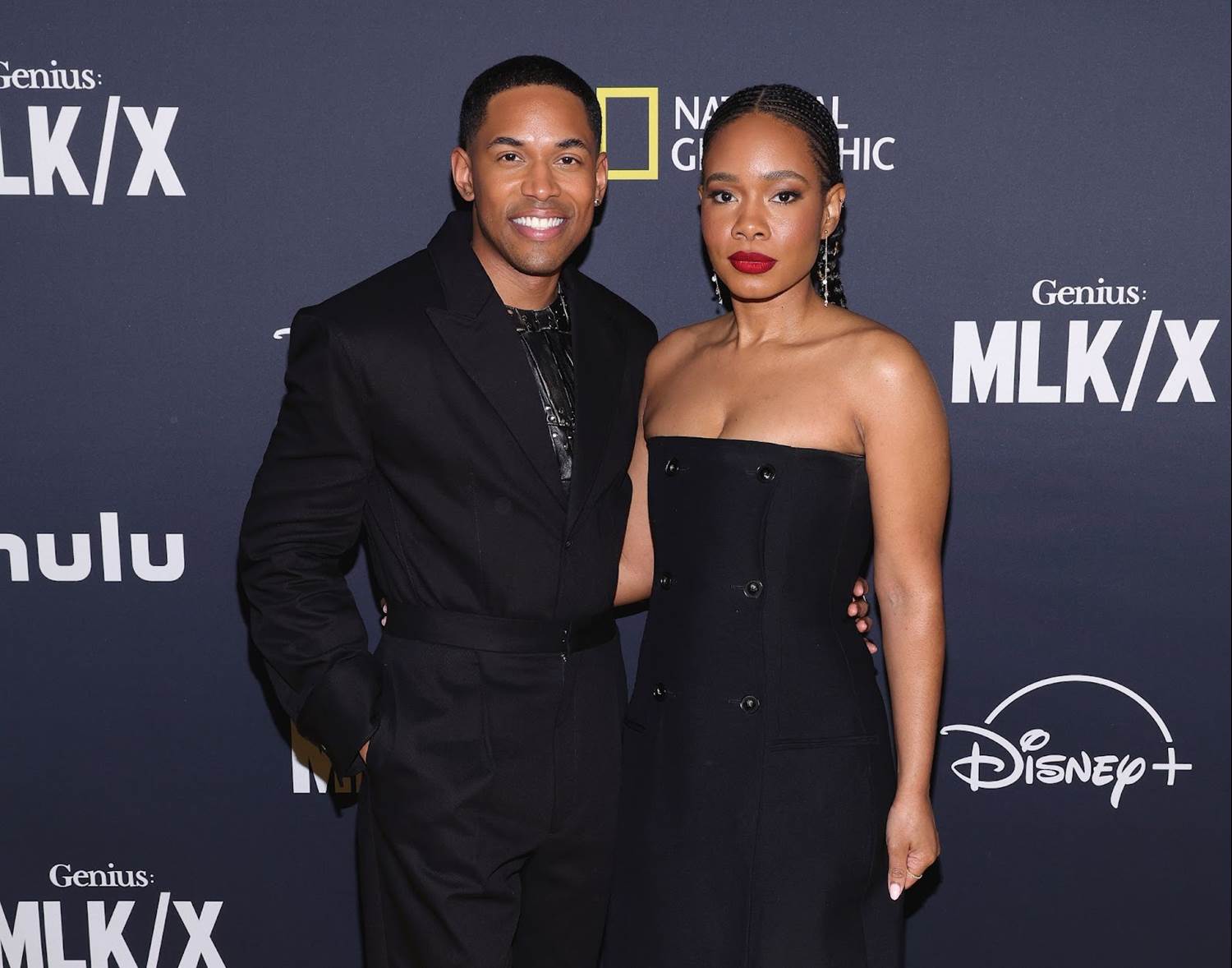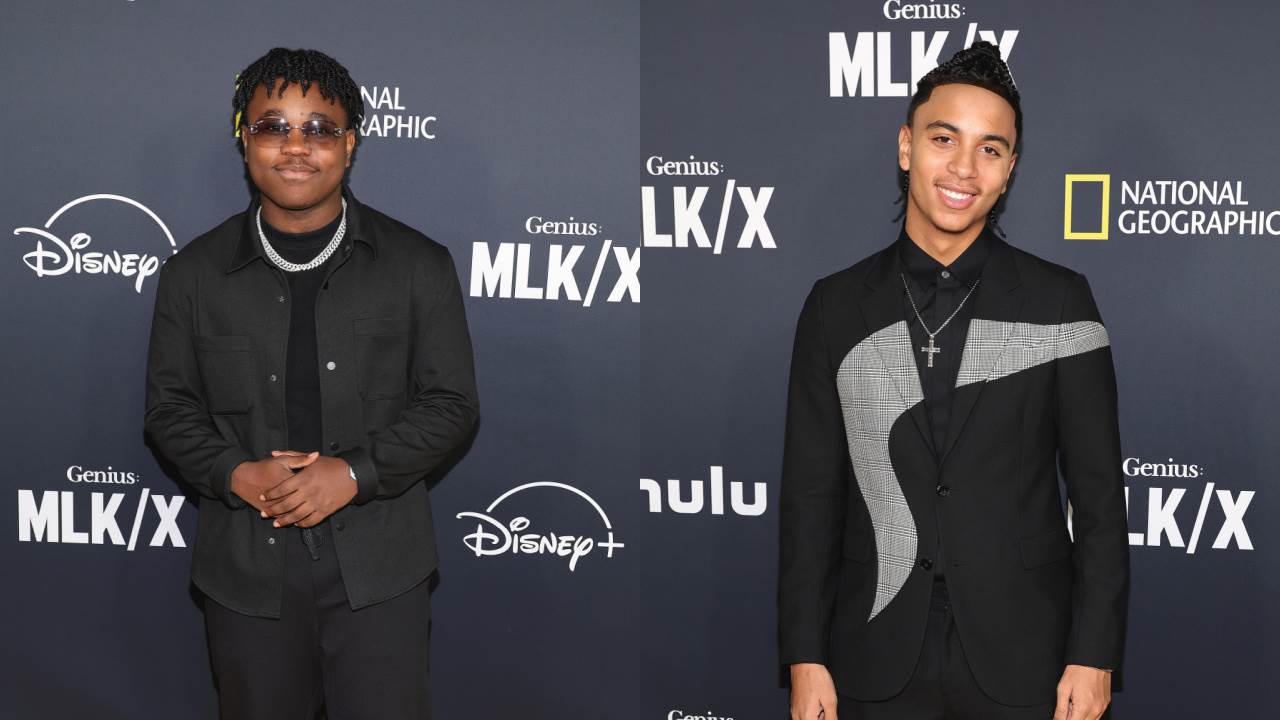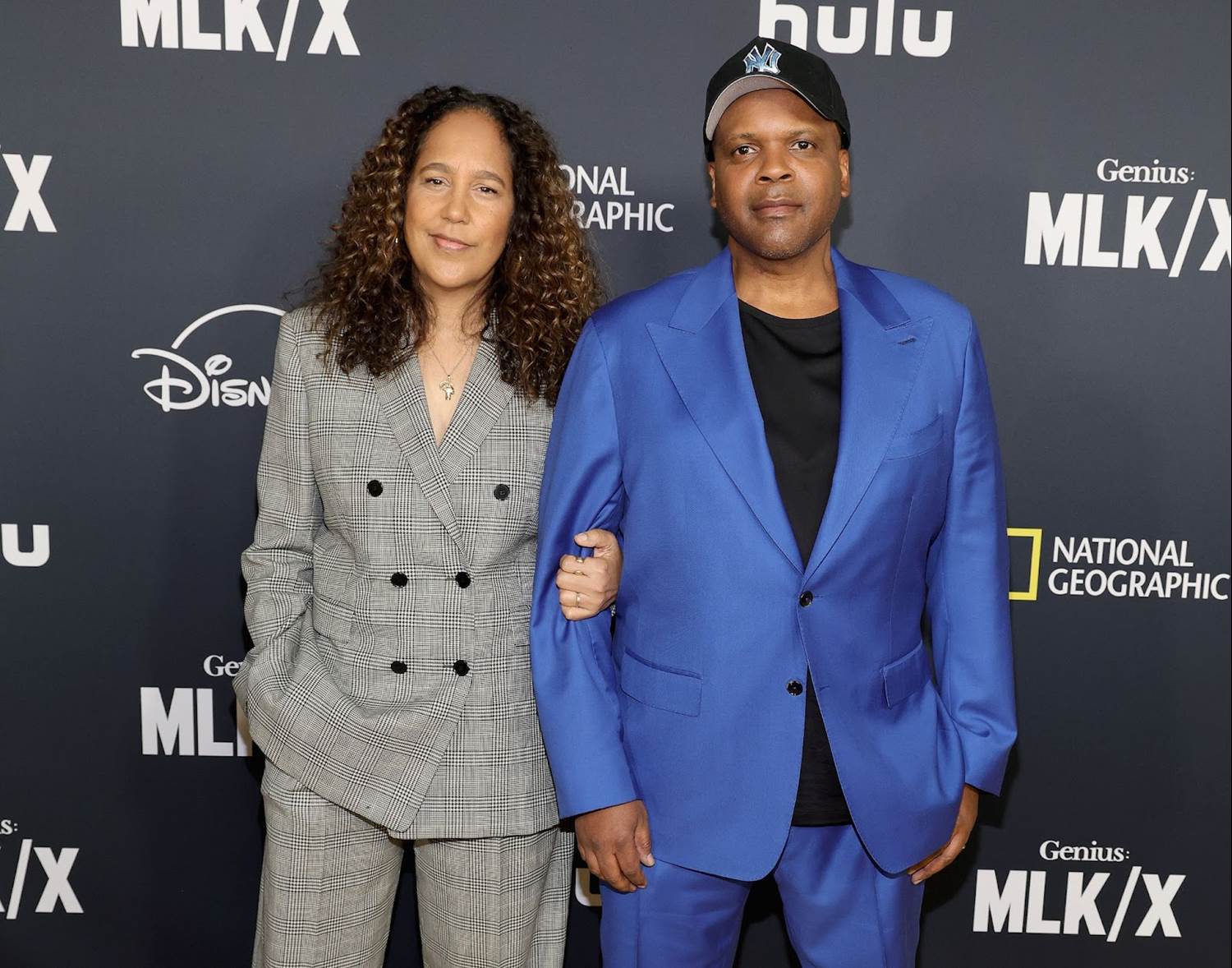“What did I do to deserve this?” That’s a question that actor Kelvin Harrison Jr. had for the creative team behind National Geographic’s Genius: MLK/X when he was offered the role of a lifetime, portraying Dr. Martin Luther King, Jr. The first two episodes premiered last night on Nat Geo, and are now available to stream on Disney+ and Hulu. I had the honor of attending the red carpet premiere, where I got to chat with members of the cast and creative team about this extraordinary documentary series. “What did I do to earn this moment, to be able to portray a man that I've always looked up to? The man that's done so much greatness. The man that gives me a reason to act today.”
Like most actors, Kelvin Harrison Jr. is accustomed to auditioning for the roles he’s landed, which have included playing B.B. King in Elvis and Joseph in Chevalier. “I was overwhelmed,” he confessed about being offered this role without the usual audition process. Kelvin was experiencing a bit of imposter syndrome, primarily due to his young age. “I had a conversation with the producers and the executive producers and the showrunners, and I expressed these concerns, and they said, ‘Lean into it. That's what's going to drive you through the story. Dr. King was only 26 when he led the Montgomery Bus Boycott, and here you are at 28, and you're about to portray him.’"
Within the series, there are actually three actors who portray Dr. Martin Luther King, Jr. at various stages of his life. Sharing the role with Kelvin Harrison Jr. is Jalyn Hall, who played Emmett Till in Till and starred in Disney’s The Crossover. In Genius: MLK/X, Jalyn portrays Dr. King in his teenage years. “There's always going to be that initial drop of your gut, like the butterflies,” Jalyn recalled about preparing for yet another monumental role, one that would make any actor nervous. “But once you get past that and you really learn what you're doing, not only for yourself and your career but what you're doing for the world in general, it gives you that sort of self-comfort. And when I went into this process, I had that comfort, which helped me transition into portraying the character.”
“I actually read the biography of Malcolm X written by Alex Haley,” Joshua Caleb Johnson shared about portraying teenage Malcolm X. Having been friends with Jalyn Hall for years and co-starring with him in The Crossover, Malcolm X was someone Joshua already idolized, but the role gave him the chance to learn a lot more about him. “A lot of his teenage years, I didn't know about, nor did I know about his childhood years. So basically, everything in his teenage and childhood years, I kind of learned brand new from reading the book. And it was very fascinating to see how he had a whole life from six until he got out of prison.”
“It was shock, excitement, fear, everything you think bubbling all at once,” added Weruche Opia about getting the role of Coretta Scott King. Born in Nigeria and raised in the U.K., Weruche came to the project with an international understanding of the impact that Dr. Martin Luther King, Jr. and Malcolm X had on not just America but the world. Getting to join this series gave her a deeper appreciation for the women central to both men’s stories. “To be involved in telling the story of the women, who have a lot of the time been sidelined and not delved into, was an honor and privilege and something I had to be a part of.”
“These men wouldn't have accomplished what they did without women in their lives that loved them, that supported them, embraced them, and they're part of the story,” said Jeff Stetson. His 1987 play, The Meeting, served as a source of inspiration for Genius: MLK/X, and he also serves as a writer and executive producer of the series, which provides a more expansive look at Coretta Scott King and Betty Shabazz than previous screen adaptations of the stories of Dr. Martin Luther King, Jr. and Malcolm X. “Coretta was much more involved in the Vietnam War movement than Martin was until 1967, 1968. Betty Shabazz has just been an extraordinary figure. I had the privilege of meeting her years ago when we both attended my play. We spent a lot of time together. What an extraordinary women. A leader, someone who raised, essentially, six children, pretty much on their own. And I don't think we'll see another one like her.”
“We have great respect for the projects that have come before, but what we were excited about is that this is a limited series,” executive producer Gina Prince-Bythewood said about the opportunities to revisit the central figures of the Civil Rights Movement. “We had 8 hours, so we thought of it as an 8-hour film, which gave us a chance to really broaden the story and dig deep. We went on a deep dive into the research and put together a think tank, which had incredible scholars, and religious leaders, and activists, just to teach us, talk to us, debate, so that we could get those stories that people don't know about, and really dig deep and show another narrative that people haven't seen.”
“We weren't interested in the Wikipedia version of this,” added executive producer Reggie Rock Bythewood about the detailed scope of the series. “It was really to just uncover the humanity of them. All the challenges with having to overcome loss, the mental health aspect, the pressure they felt, and the joy they had. Really making them full human beings is what we were excited to do.”
“One of the biggest things I took away was how much one couldn't exist without the other,” shared editor Libya El-Amin, who thought she knew everything about Dr. Martin Luther King, Jr. and Malcolm X when she took on this project. “If you just had MLK preaching peace and you didn't have Malcolm on the other side, there wouldn't have been pressure from the president to make this happen. A lot of things happened because there was such push and pull. And I don't think I was aware of how much they were aware of each other, because they were trying to communicate. They were sending messages to each other. Some of them were ignored. There was communication happening, but they don't really meet in person until the very end. Or the beginning, in the flashback.”
Dr. Martin Luther King, Jr. and Malcolm X were fighting towards the same goal, but with very different tactics. This fourth season of National Geographic’s Genius began like the previous ones, with one central figure in mind. But it quickly became clear to the creative team that, despite only meeting face-to-face one time, the story of the Civil Rights Movement was incomplete without Malcolm X’s role. And despite all their differences, these two men were on somewhat parallel paths from birth to death.
The first two episodes of Genius: MLK/X are now streaming on Disney+ and Hulu. New episodes air on Thursdays at 9/8c and stream the next day on both platforms.
(Please note this article contains affiliate links. Your purchase will support LaughingPlace by providing us a small commission, but will not affect your pricing or user experience. Thank you.)



